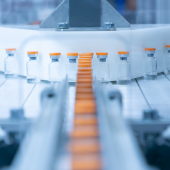Contemporaneity
To hazard a comparison, I might incredibly liken the placid rustling of the leaves of a poplar in the morning breeze, to the deaf noise of the awakening city starting up its blind productive machine; and again, liken the whirling of pollen which falls like Spring snow to the choice of the men and women who elsewhere, unbeknownst to us, are designing the future of humanity.
Life, nature and society continuously elude our quest for knowledge, pitting us against our limits, our finiteness. And it is this very inadequacy to grasp the complexity that keeps us in a continuous rush, playing a simultaneous multi-table game amidst commitments, tasks and leisure activities.
The time we have is never enough, and yet…. the Sun continues to rise only once during the day and no one can say it is not honestly doing its job.
We are never satiated, we want to be everywhere, to know everything that might be useful to us and thus we immerge ourselves in a flow of information that we might better define as a sequence of flash occurrences, often apparently obvious and contradictory. They pass over us, run incessantly, where we might from time to time end up retaining what is indeed little, the fleeting meaning of which often escapes us.
With the web and in particular with the social networks we try to tie together facts and ideas in a continuous dialogue with others, often paying more attention to the exception than to the rule, convinced that our times are always and at any rate interesting.
A fine instinct is needed… to be able to pick ones way between the potential, the limits and the falseness of the new media.
For the generation that started working in the times of the telefax, today is incredible also in terms of the changes in the job market, the reduction in the bond of reciprocity between the citizen and society, the dialectics between local and global.
Our contemporaneity where, to stay in our times, still echoes with the twentieth-century-like “Everything, here and now”, has taken on a “liquid” dimension, everything is new and needs to be tried out.
As Zygmunt Bauman writes in the book “Parasitic Capitalism” «the art of living in a world that is more than saturated with information still needs to be acquired. Even more so, the much more difficult art of educating human beings in this life».
An immense challenge that cannot have us forget how important it is to place some distance between us and the facts, to give us our time(s), to be able to make conscious, informed choices.
Stay tuned.




















